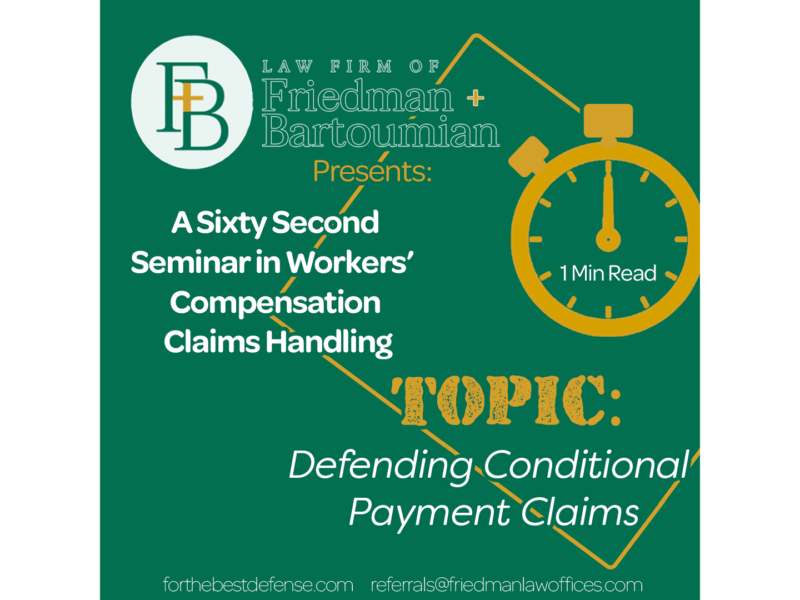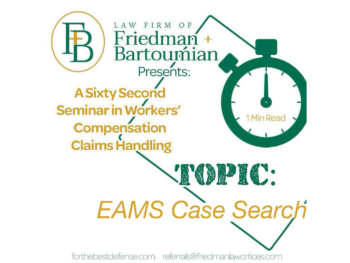It is safe to presume that every administrator of claims for workers’ compensation benefits is aware of the government’s right to seek reimbursement of Medicare Conditional Payments. These payments are known as Medicare Secondary Payer (MSP) claims and are asserted by Medicare Secondary Payer Recovery Contractors (MSPRC) who seek reimbursement in the federal government’s behalf.
Unfortunately, claims administrators are experiencing a two-fold problem with MSP reimbursement demands:
- MSP claims seek reimbursement for all medical services, including those unrelated to the industrial injury.
- The reimbursement demand is often issued beyond expiration of the statute of limitations.
When MSPRC becomes aware of a workers’ compensation claim, they produce a printout of all medical services paid by Medicare to and on behalf of the claimant. They then seek reimbursement of the services listed on the printout and leave it up to the work comp claims administrator to weed out those that are unrelated to the industrial injury. Many administrators simply pay everything rather than scrutinize the printout for accuracy. They also have no desire to get into a dispute with the U.S. Government.
Another typical scenario finds the MSPRC seeking reimbursement for services after the expiration of the statute of limitations. Unfortunately, most claims professionals are totally unaware that a federal statute of limitations even exists. It’s difficult enough for claims reps to keep track of the ever-changing state work comp laws and regulations without adding federal statutes to the mix. In that regard, per the Strengthening Medicare and Repaying Taxpayers Act of 2012 (SMART Act), effective July 10, 2013, the statute of limitations in an MSP claim is three years from the date of the Medicare payment, and any demand for payment beyond the three-year statute is non-reimbursable.
To recap, an MSP contractor will often issue reimbursement demand letters for all medical services paid, including those unrelated to the industrial injury, as well as for services beyond the statute of limitations, leaving it up to the claims administrator to determine what is reimbursable. The amount of money inappropriately claimed by the MSPRC has reached an alarming stage where claims adjuster diligence is required now more than ever. It has been said that had these reimbursement demands originated from any entity other than the U.S. Government, such claims would likely never have been asserted!



 Benefit Printouts: A Sixty-Second Seminar in Workers’ Compensation Claims Handling
Benefit Printouts: A Sixty-Second Seminar in Workers’ Compensation Claims Handling
Leave a Reply